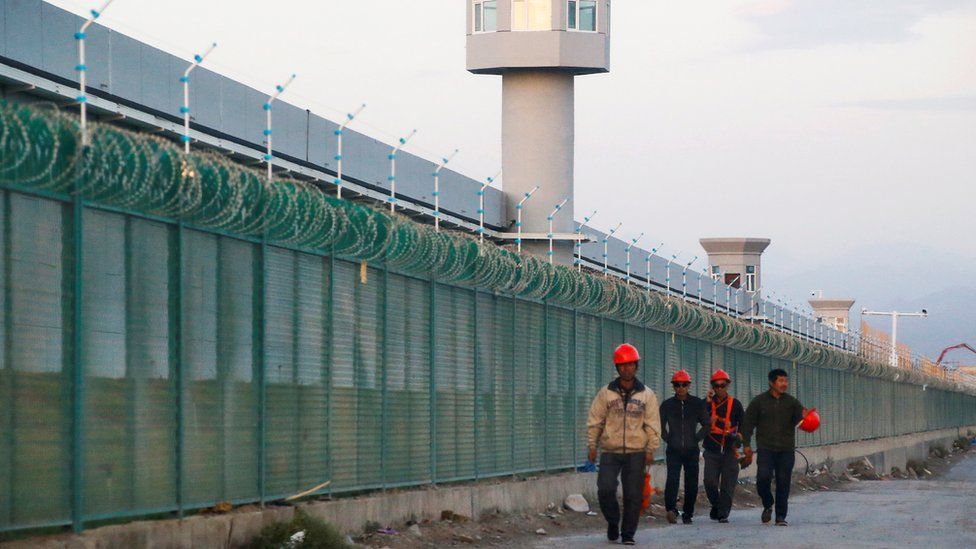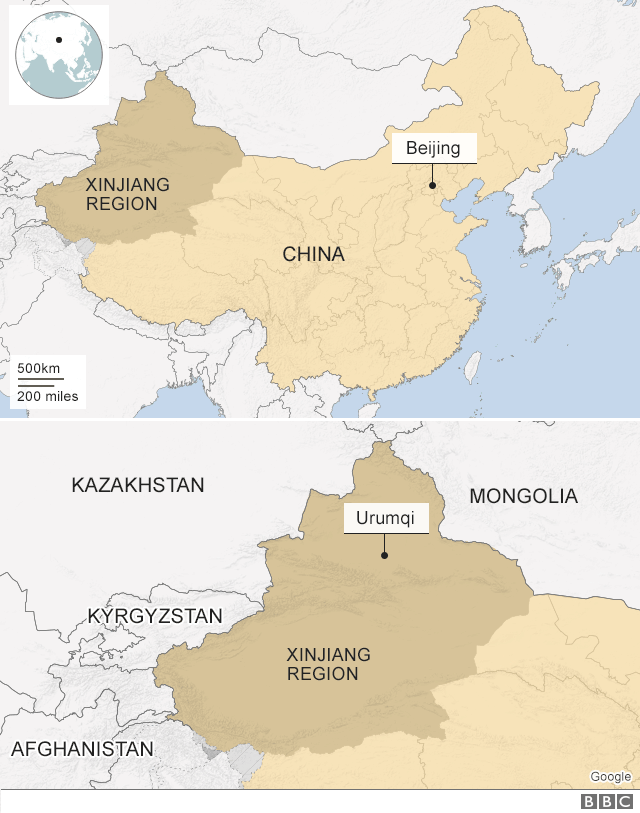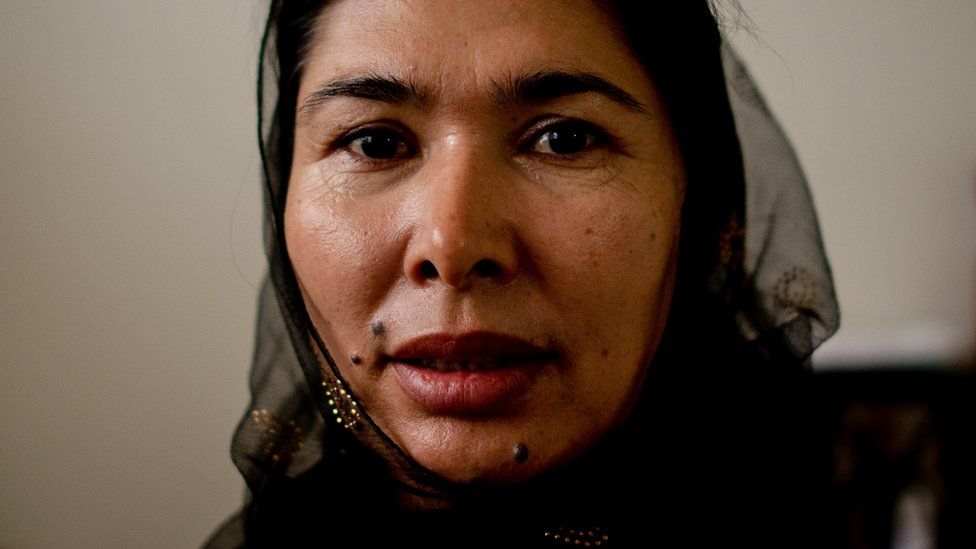 China has created a sprawling network of detention camps for minorities in the Xinjiang region
China has created a sprawling network of detention camps for minorities in the Xinjiang regionSeveral Western countries have imposed sanctions on officials in China over rights abuses against the mostly Muslim Uighur minority group.
China has detained Uighurs at camps in the north-west region of Xinjiang, where allegations of torture, forced labour and sexual abuse have emerged.
The sanctions were introduced as a coordinated effort by the European Union, UK, US and Canada.
China responded with its own sanctions on European officials.
It has denied the allegations of abuse, claiming the camps are "re-education" facilities used to combat terrorism.
But UK Foreign Secretary Dominic Raab said the treatment of Uighurs amounted to "appalling violations of the most basic human rights".
The EU has not imposed new sanctions on China over human rights abuses since the 1989 Tiananmen Square crackdown, when troops in Beijing opened fire on pro-democracy protesters.
What do we know about the sanctions?
The sanctions, including travel bans and asset freezes, target senior officials in Xinjiang who have been accused of serious human rights violations against Uighur Muslims.
Those targeted have been named as:
- Chen Mingguo, the director of the Xinjiang Public Security Bureau, the local police force
- Wang Mingshan, a member of Xinjiang's Communist Party standing committee, who, the EU says, "holds a key political position in charge of overseeing" the detention of Uighurs
- Wang Junzheng, party secretary of the Xinjiang Production and Construction Corps (XPCC), a state-owned economic and paramilitary organisation
- The former deputy Communist Party head in Xinjiang, Zhu Hailun, who is accused of having held a "key political position" in overseeing the running of the camps
- The Xinjiang Production and Construction Corps Public Security Bureau, which is in charge of implementing XPCC policies on security matters, including the management of detention centres
Mr Raab called the abuse of Uighur Muslims in Xinjiang "one of the worst human rights crises of our time".

"I think it's clear that by acting with our partners - 30 of us in total - we are sending the clearest message to the Chinese government, that the international community will not turn a blind eye to such serious and systematic violations of basic human rights and that we will act in concert to hold those responsible to account," he told fellow parliamentarians.
In a statement, US Secretary of State Antony Blinken said China was committing "genocide and crimes against humanity". The US said it sanctioned Wang Junzheng and Chen Mingguo for their connection to "arbitrary detention and severe physical abuse, among other serious human rights abuses".
Canada's foreign ministry said: "Mounting evidence points to systemic, state-led human rights violations by Chinese authorities."
The sanctions came amid increasing international scrutiny over China's treatment of Uighurs.
What is China accused of?
More than a million Uighurs and other minorities are estimated to have been detained in camps in Xinjiang.
Xinjiang lies in the north-west of China and is the country's biggest region. Like Tibet, it is autonomous, meaning - in theory - it has some powers of self-governance. But in practice, both face major restrictions by the central government.
Uighurs living in the region speak their own language, similar to Turkish, and see themselves as culturally and ethnically close to Central Asian nations.
The Chinese government has been accused of carrying out forced sterilisations on Uighur women and separating children from their families.
A BBC investigation published in February contained first-hand testimony of systematic rape, sexual abuse and torture of detainees.
One woman testified that women were removed from their cells "every night" and raped by one or more masked Chinese men. A former guard at one of the camps, who spoke on condition of anonymity, described torture and food deprivation of inmates.

China has banned BBC World News television over coverage of the Uighur issue and coronavirus.
The country initially denied the existence of the camps, before defending them as a necessary measure against terrorism. It has denied allegations of human rights abuses.
How has China responded to the sanctions?
China on Monday said the sanctions - initially announced by the EU - were "based on nothing but lies and disinformation".
It said it would sanction 10 people and four entities in Europe "that severely harm China's sovereignty and interests and maliciously spread lies and disinformation" in response. Those affected by China's sanctions are barred from entering the country or doing business with it.
German politician Reinhard Butikofer, who chairs the European Parliament's delegation to China, was among the most high profile officials on China's list. Adrian Zenz, a leading expert on China's policies in Xinjiang, and Swedish scholar Bjorn Jerden were also targeted.
Mr Zenz has reported extensively on alleged abuses in Xinjiang. His report last year on the forced sterilisation of Uighurs prompted international calls for the United Nations to investigate. State media has called him an "infamous anti-China" figure, and accused him of spreading lies.
Dutch lawmaker Sjoerd Sjoerdsma, who was put on China's sanctions list, said the retaliatory measures "prove that China is sensitive to pressure."
"Let this be an encouragement to all my European colleagues: Speak out," he wrote on Twitter.